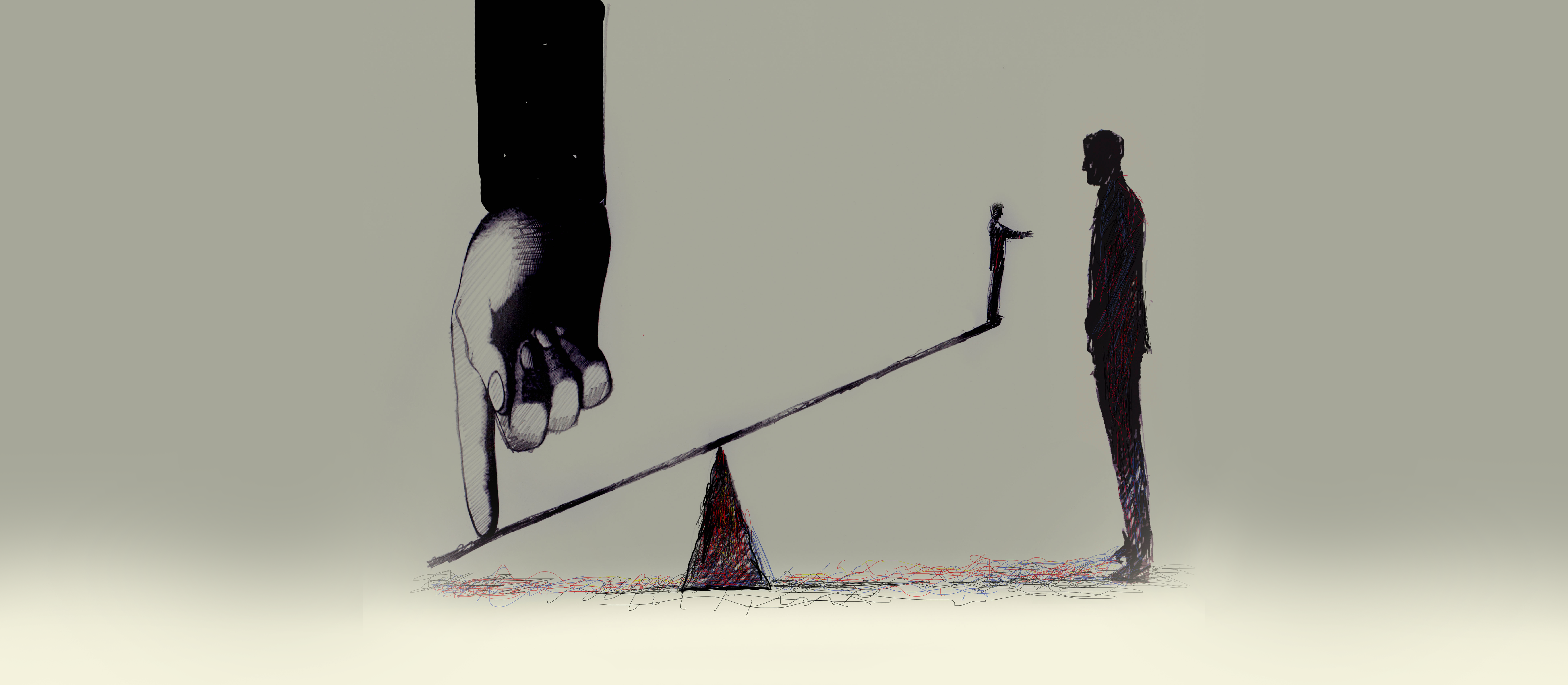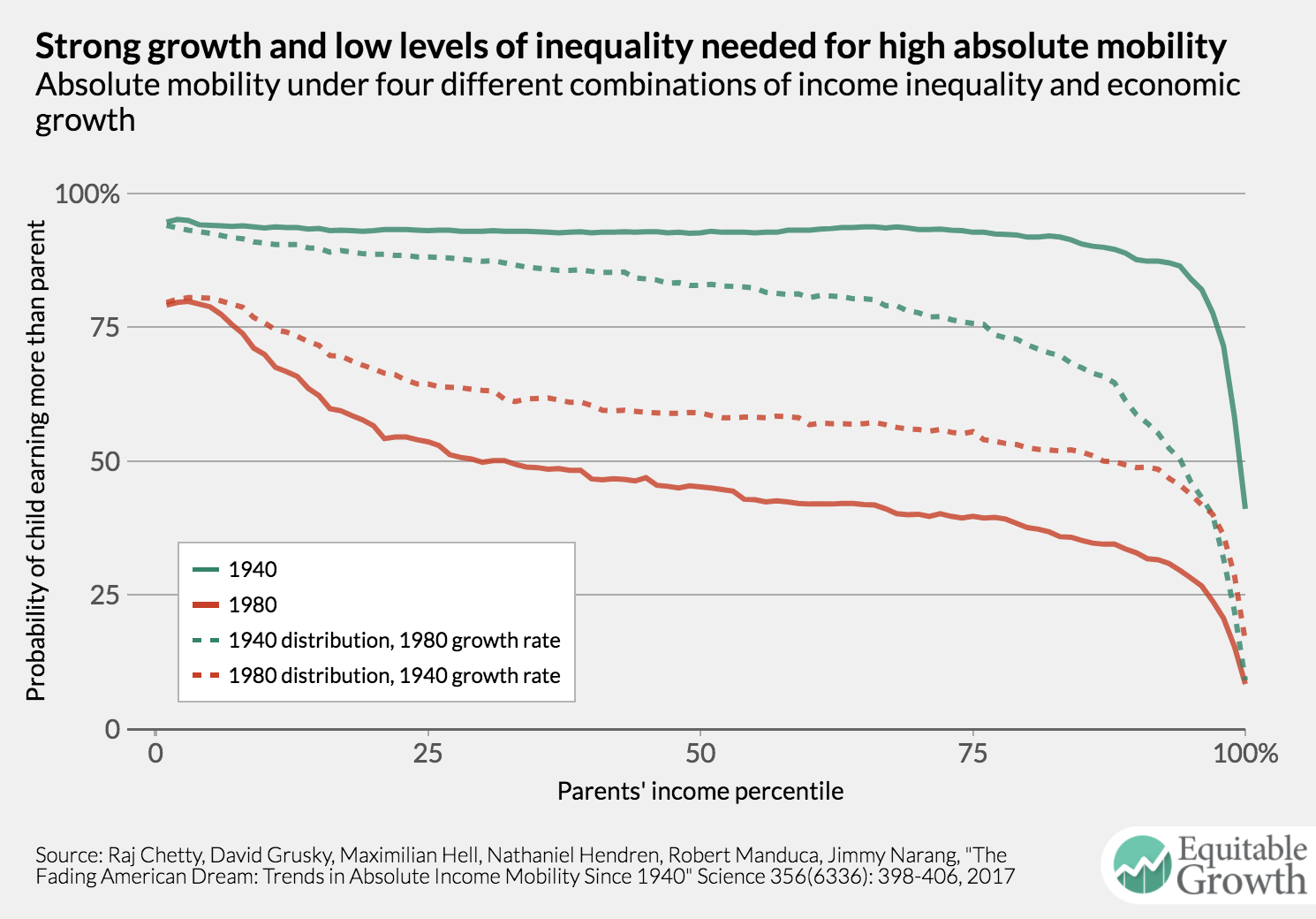Does America have an income inequality problem or an opportunity problem?
Actually, they're the same thing


A free daily email with the biggest news stories of the day – and the best features from TheWeek.com
You are now subscribed
Your newsletter sign-up was successful
Should the fight against inequality be the Democrats' defining cause? The party's rising tribe of left-wing economic populists — headed up by Sens. Elizabeth Warren (D-Mass.) and Bernie Sanders (I-Vt.) — would answer with a resounding "yes."
But another tribe in the party has very different ideas.
Jon Cowan is the president of the Democratic think tank Third Way, the "intellectual heir to President Bill Clinton’s centrist politics," as The New York Times' Eduardo Porter put it in a new profile. Cowan acknowledges that "income inequality is severe" and "parts of the economic system are unfair." But he also insists that "these are not the central problems vexing most Americans. Many of the solutions proposed to meet them are not responsive to the aspirations, needs, and values of those Americans." Cowan would prefer that increasing opportunity become "the great moral cause of our time."
The Week
Escape your echo chamber. Get the facts behind the news, plus analysis from multiple perspectives.

Sign up for The Week's Free Newsletters
From our morning news briefing to a weekly Good News Newsletter, get the best of The Week delivered directly to your inbox.
From our morning news briefing to a weekly Good News Newsletter, get the best of The Week delivered directly to your inbox.
Cowan is hardly alone here: Distinguishing between "improving opportunity" and "fighting inequality" — and insisting policymakers champion the first and eschew the second — is a textbook talking point of centrists and conservatives.
Unfortunately, when you dig past the slogans and try to figure out what they mean exactly, their whole argument collapses.
Let's start by defining "opportunity." One reasonable metric would be the odds that a child born in the U.S. will make more than their parents. And we know opportunity defined this way is fading — 90 percent of children born in 1940 made more than their parents, compared to just 50 percent of those born in 1980.
Now, the economy of the mid-century featured less income inequality and higher economic growth than the post-1980 economy. And centrists have long insisted that the fix for opportunity today is returning to the mid-century's growth levels rather than its income distribution.
A free daily email with the biggest news stories of the day – and the best features from TheWeek.com
But we now have the research to show this is absolutely backwards. In the graph below, the vertical axis is a child's chances of earning more than their parents, and the horizontal axis is what income percentile the child was born into. The solid green line is the 1940s cohort, and the solid red line is the 1980s cohort. You can clearly see the gap. But the graph also includes two alternative hypothetical histories: The green dashed line is what would have happened if post-1980 economic growth was paired with mid-century income distribution. The red dashed line is the opposite: mid-century growth rate plus post-1980 distribution.

As you can see, slower growth with less income inequality makes a much bigger difference for opportunity than high growth plus lots of inequality. Long story short, opportunity and distribution can't actually be separated from each other.
And if you think about it for a second, this is obvious. All the things we think of as making up opportunity — education, community resources, job availability, etc. — are a function of where resources go.
Cowan wants to start a national apprenticeship program, for instance. But the problem he's trying to solve is that, over the last few decades, business stopped providing these programs themselves and left it to individual workers to shoulder the cost. So the fix would require moving the costs back off workers, and back onto businesses or the government — redistribution by definition. Cowan also wants to expand wage subsidies, presumably like the Earned Income Tax Credit. But to work, such subsidies would have to be financed with either tax hikes on the wealthy or deficit spending — again, redistribution by definition.
Finally, Cowan wants to encourage more small business formation. Which is a great idea, on its own. But Cowan also apparently subscribes to the conventional wisdom that what's holding business creation back is scarce credit. In point of fact, a far more likely explanation for faltering business creation is that the massive hole in aggregate demand left by the Great Recession was never repaired. And increasing aggregate demand is, once again, all about redistribution.
The last irony here is that, if you follow Cowan's logic on education and job opportunity and so forth, it actually suggests far more radical proposals, not less.
We definitely need more good jobs for people without a college education. But apprenticeship programs won't do any good if the jobs supply doesn't keep up. And truly tightening the labor market will require big interventions: Think the $1 trillion infrastructure bill the Democrats are contemplating, or a full-fledged federal job guarantee. An increase in the earned income tax credit would have to be of a similar size to really make a difference in American livelihoods. And again, all of this will have to be paid for either with borrowing or big tax hikes on the wealthy.
Cowan's best idea is having government "take a more proactive role to lean against market power that shuts rivals out of markets," as Porter describes it. That sounds like a call for reinvigorated antitrust enforcement. But Cowan and other Democratic centrists probably vastly underestimate just how ferocious and radically different that enforcement would have to be to get us back to the distribution of market power that characterized the mid-century era of high opportunity.
In profiling Cowan, Porter more or less admits the first part of this paradox: "This platform, by the way, would probably mitigate income inequality," he wrote. "It would just do so in a more business-friendly manner." In other words, it would be redistribution in a diluted, hide-the-ball manner. As Porter writes, Cowan's platform is different from the left because it "lacks a villain."
Alternatively, you could say it's designed to avoid freaking out America's wealthiest and most powerful people.
The problem we face is that the U.S. economy has been transformed into a massive wealth extraction machine to benefit the 1 percent. The fix will mean transforming it into one that benefits everyone else more and the 1 percent far less. And whether you call it "increasing opportunity" or "fighting inequality," any fix commensurate with the problem is going to be hated by the people at the top of the economy.
And if Cowan's comments are any indication, that's a reality lots of influential people in the Democratic Party are still terrified of facing.
Jeff Spross was the economics and business correspondent at TheWeek.com. He was previously a reporter at ThinkProgress.
-
 How to Get to Heaven from Belfast: a ‘highly entertaining ride’
How to Get to Heaven from Belfast: a ‘highly entertaining ride’The Week Recommends Mystery-comedy from the creator of Derry Girls should be ‘your new binge-watch’
-
 The 8 best TV shows of the 1960s
The 8 best TV shows of the 1960sThe standout shows of this decade take viewers from outer space to the Wild West
-
 Microdramas are booming
Microdramas are boomingUnder the radar Scroll to watch a whole movie
